Shaping rules of the future: The goal for China's third opening up

Having experienced a very complicated 2020, we have new expectations for 2021. 2021 marks the first year of China's 14th Five-Year Plan and the first centenary or the 100th anniversary of the establishment of the Communist Party of China (CPC). This will be a new starting point for our nation's development. Today, we are confronted with massive changes that we have not seen throughout the last hundred years and the prospect of seizing the opportunities of this new era. The China-EU Comprehensive Agreement on Investment (CAI) is undoubtedly a landmark agreement, which signals the third opening up of China.
Modern China - opening up twice over
In modern times, China has opened up twice. The first took place after the Opium War which was forced upon our nation by British warships and Western powers. Our nation faced an existential crisis because of it. In the century that followed, Chinese elites from all walks of life embarked on the path of survival and to save the nation. Eventually, the CPC, with Mao Zedong at its core, found the way to success and founded the People's Republic of China in 1949. Hence, it is said that Mao Zedong's generation of Chinese communists has solved the problem of "a nation suffering a beating".
In the late 1970s and early 1980s, we proactively embarked on the second opening up. In the 1980s, we learned our lesson that a nation that closes its doors will become backward and that a backward nation will suffer a beating. Therefore, we took the initiative to open up our doors and invited overseas capital to our nation. By proactively opening up, we firmly seized every opportunity brought about by globalisation.
In the past 40 years, we have made great strides in developing a "poor socialist country", as mentioned by Deng Xiaoping, into the second largest economy in the world. Today, China has a per capita GDP of over US$10,000, increased from around US$300 in the early 1980s, and a middle class of 400 million people. More importantly, we have alleviated more than 800 million people from poverty in the past 40 years, including 100 million in the past eight years. Notably, China is the largest trading nation today.
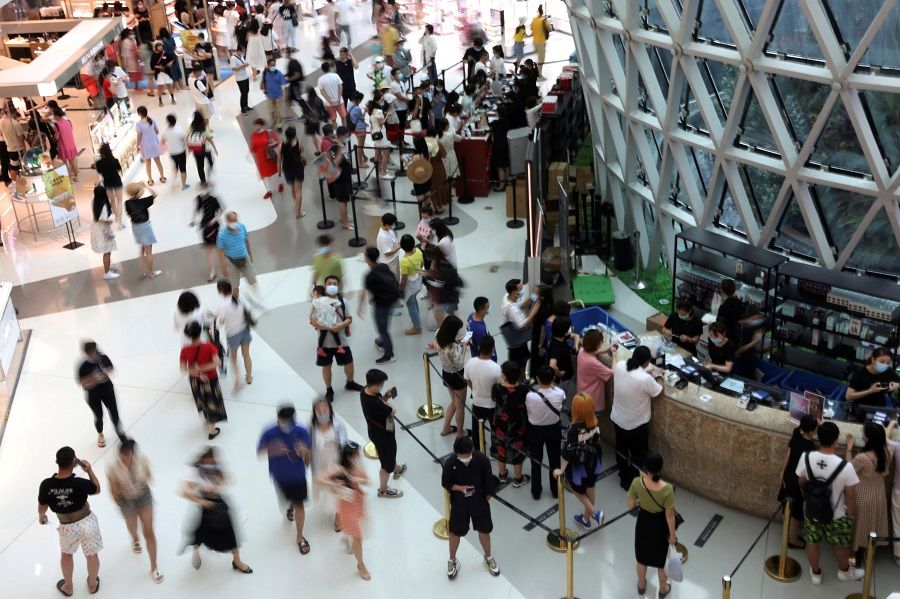
From every perspective, these are miracles in the history of the global economy. Hence, it is said that Deng Xiaoping's generation of Chinese communists has solved the problem of "a starving nation".
Even if the US hardliners contain and block us, we will open up to the US and the West. Today's China has both the determination and ability to do so.
The third and unilateral opening-up
Opening up is not dreadful; it has brought progress to our systems. In the 1990s, before accession to the World Trade Organization (WTO), we revised countless domestic laws, regulations and policies in order to integrate with the world. Although the 1997-1998 Asian Financial Crisis and the 2008 Global Financial Crisis affected us, we instead became the cornerstone of stability for the global economy. Since joining the WTO, we have made the greatest contribution to global economic growth.
The massive changes that we currently face are what we have not seen before in the past hundred years. With our rapid rise, the US, as the world's paramount superpower, believes that we pose a threat. In recent years, China-US relations have deteriorated sharply, resulting in great changes in global geopolitics. The Trump administration has itself opposed China and declared that it will assemble a "global coalition" against China, in preparation for a full-scale Cold War against China.
What shall we do under these circumstances? Personally, I think it is now the eve of our third opening up. On top of being a proactive endeavour, it will also be a unilateral opening up in many spheres. Even if the US hardliners contain and block us, we will open up to the US and the West. Today's China has both the determination and ability to do so.
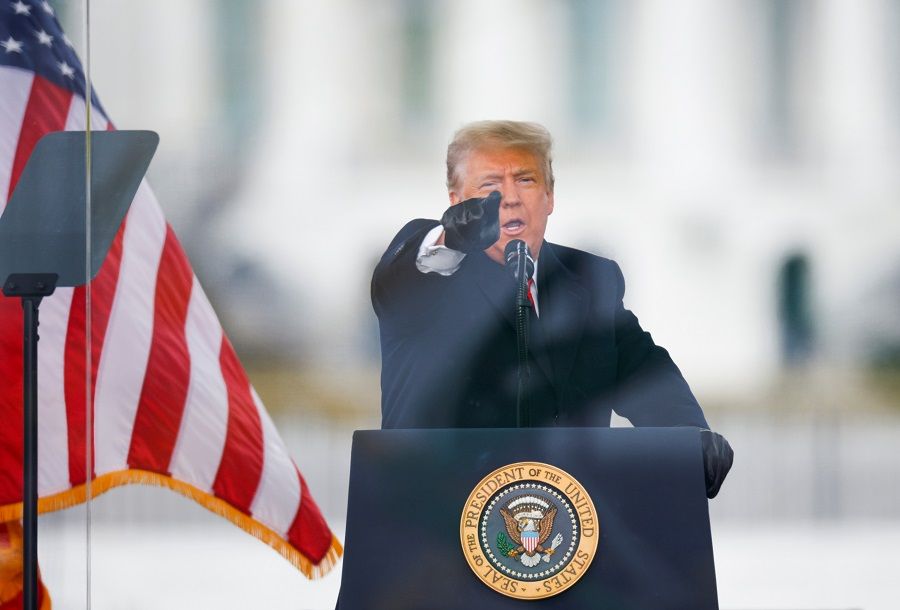
If competition between China and the US is inevitable, then we should neither shy away from it nor worry too much about it because the upper hand hinges on a nation's openness, not how closed the nation is to the outside world. Historically, the more open a nation is, the more developed it will be. A closed nation, no matter how powerful, will eventually decline. The reason is simple: only with openness will the global market exist and the factors of production flow to the open economies.
Regardless of the China policy of the US or the West, capital will not forsake the huge China market.
In 2017, when the US began to engage in trade protectionism and economic nationalism, President Xi Jinping declared at the World Economic Forum in Davos that China would continue to advance globalisation. Since then, he has repeatedly emphasised China's determination to do so and to open up. In fact, opening up has long become China's fundamental national policy that will not waver with the changing global environment.
We now have the capability to implement unilateral opening up. Having put ourselves through the mill for over 40 years, we have accumulated sufficient material wealth and experience to deal with the negative impacts of globalisation. At the same time, increasing the opening up of an economy with a market of 400 million middle class consumers can change the course of global investments and trade.
According to the Peterson Institute for International Economics, a US think tank in Washington, despite the trade war between Trump and China in the past two years, US$600 billion flowed into China's capital markets. According to The Economist, US$200 billion flowed into China's capital markets in the first ten months of 2020. Regardless of the China policy of the US or the West, capital will not forsake the huge China market.
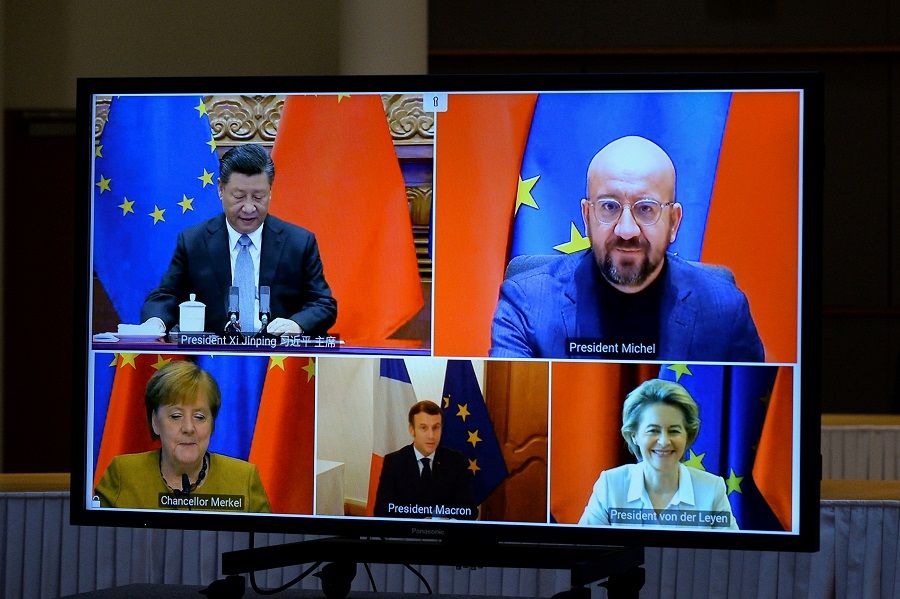
We have recently signed the Regional Comprehensive Economic Partnership Agreement (RCEP) with ASEAN and other nations. President Xi has indicated that China remains open to the Comprehensive and Progressive Agreement for Trans-Pacific Partnership (CPTPP). On the evening of 30 December 2020, we also reached agreement on the China-EU CAI, concluding seven years of negotiations. All these actions point towards China becoming increasingly open.
Third opening up: the right to formulate rules of competition
Unilateral opening up is to further strengthen our nation. I think the objective of the third opening up is not only about the customary issues of quantity and quality of investments and trade, technological upgrading or innovation. More importantly, it is about the narratives and rules in every sphere. We also need to solve the problem of being censured, which can only be averted by securing the right to formulate the rules.
Competing for the right to formulate the rules is central to today's global competition and the China-US competition in the future. Over the years, the US has complained about China's failure to abide by the rules in all spheres established by the US and the West. China faces the following important problems and challenges in this rules competition.
Despite having many large Internet enterprises, which account for a huge share of the world's Internet, China has very little right to formulate rules. We need to think about why this is so.
First, reforming existing rules. Through integration, China has entered the global system that is not abstract and has various rules. Established by the US and the West, however, these rules reflect the interests of the West and not those of developing nations, including China. Instead of a revolutionary in the international community, China wants to be a reformist to advocate for a more just and equitable global system through the reform of global systems and rules.
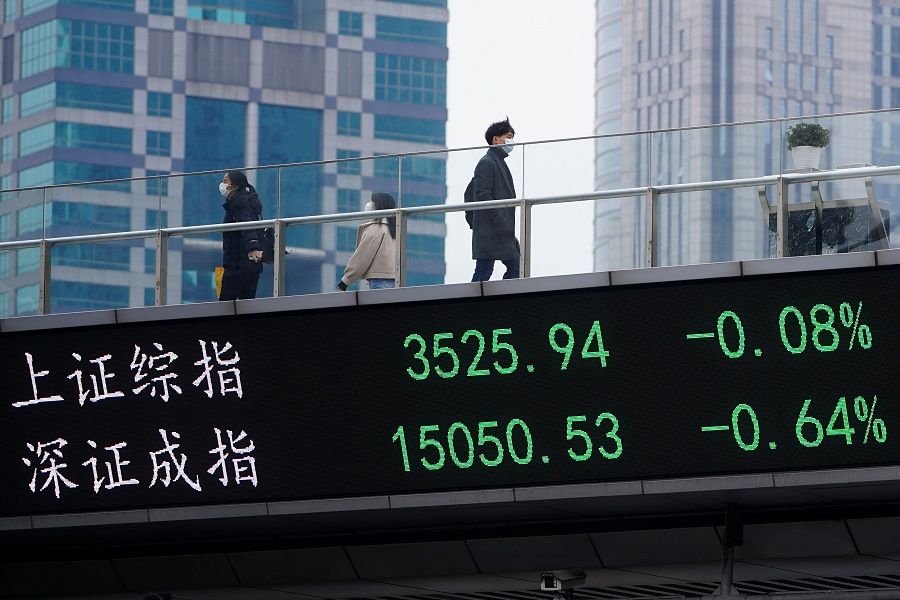
Second, leveraging on China's market to set the rules. The rules of the world, established by the West, are inseparable from the markets of the West. Despite being the second largest economy and the largest trading nation, China still does not have the right to formulate rules. How do we transform our share of the global market for this purpose? Taking the internet for instance, even though European nations do not have large-scale internet enterprises, they are using the strengths of their markets to actively formulate rules for the internet. The EU has implemented many laws and regulations on internet regulation, in competing with the US and China for this right.
Despite having many large Internet enterprises, which account for a huge share of the world's Internet, China has very little right to formulate rules. We need to think about why this is so.
Third, proactively initiating and participating in the formulation of future rules. In recent years, by promoting economic regionalisation and globalisation, we have proactively led initiatives such as the Belt and Road Initiative, the Asian Infrastructure Investment Bank and the New Development Bank (the former BRICS Development Bank), and acquired considerable experience in formulating some regional or international rules. As a next step, we should consider how to attract more nations to join in and embrace our rules.
As a superpower, we cannot emulate the West in imposing the rules that we formulate upon other nations. On the contrary, we need to fully consider other nations' interests and needs when formulating rules.
Without unified rules, we do not have a unified market, which in turn makes it difficult to transform our total trade volume into the right to formulate rules.
Fourth, competing for global standards. In today's world, rules are based on standards, and we possess a strong will to participate in the formulation of future standards. We have indicated that we are open to the Trans-Pacific Partnership (TPP, the scuttled trade agreement from which the CPTPP evolved). The RCEP and the TPP are different, in that the RCEP focuses on issues such as traditional investments and trade tariffs while the TPP is the standard for multilateral trade agreements. Competing for such standards is more advantageous for the upgrading of our technology and product quality.
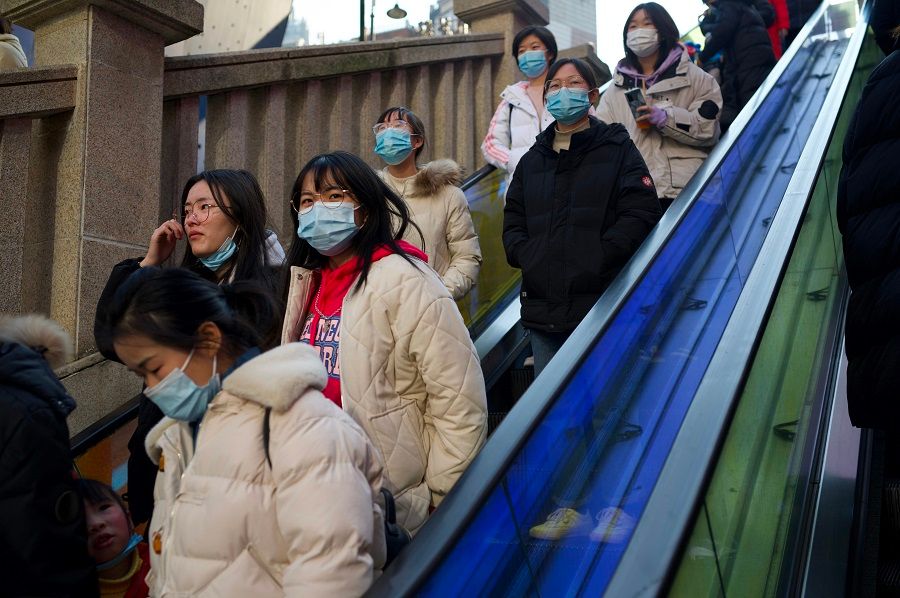
Critical to China's domestic circulation in the dual circulation paradigm is the unification of domestic rules, and likewise to our external circulation is the internationalisation of China's rules.
It is meaningful to consider the competition for the right to formulate rules through the integration of dual circulation. Personally, I think that the unification of domestic rules lies at the core of domestic circulation. China is a massive nation with vast local differences, and non-standardised rules in different areas. Even the rules for trade and investments vary in different locations in the same province. Without unified rules, we do not have a unified market, which in turn makes it difficult to transform our total trade volume into the right to formulate rules.
Nations in recent times are more powerful than old-fashioned ones. One reason is that the former has unified rules and the latter did not. The EU is powerful because it has a set of unified rules. Therefore, I think we need to develop our domestic circulation through the unification of rules, which is crucial for the market economy and the rule of law. The essence of the market economy is the rule of law, which is preceded by the unification of rules.
We can elevate the next stage of China's opening up through setting rules and standards.
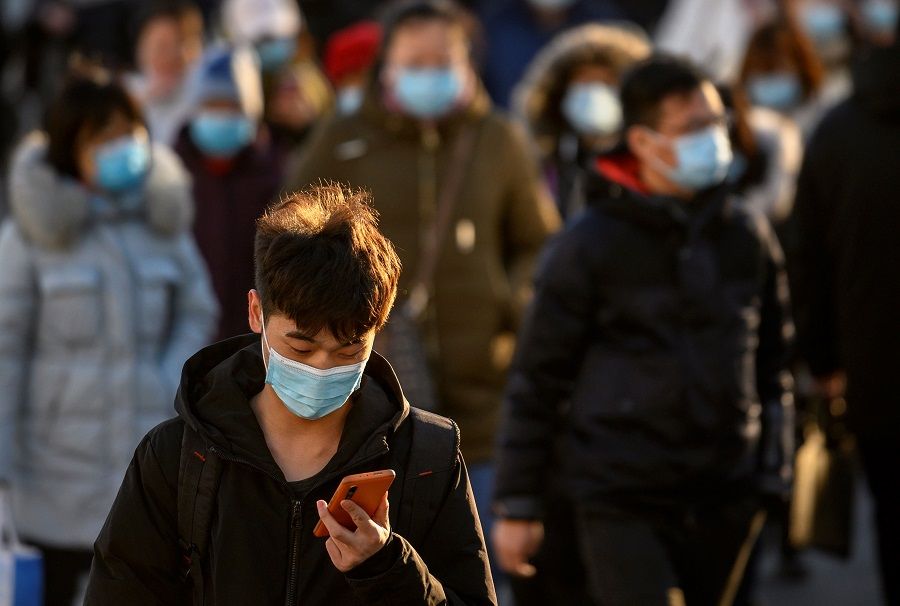
Our external circulation requires the internationalisation of China's rules. As mentioned above, the internationalisation of China's rules is certainly not imposing China's rules upon other nations. China must at least start from the following. First, while dovetailing with the existing international rules, China has to reform those rules that are unreasonable. Second, when formulating domestic rules, China needs to fully consider the interests and concerns of other nations. Third, China must consciously leverage on the strength of its huge market to set the rules.
We can elevate the next stage of China's opening up through setting rules and standards. Opening up is no longer in its traditional sense, but a broader, deeper and higher-level endeavour. By integrating domestic and external circulation, we can connect the domestic and global markets, and realise the internationalisation of China's rules while dovetailing with the international community.
I hope that China's third opening-up begins with the 14th Five-Year Plan, and that we progress from the RCEP to a future TPP and from learning the rules to formulating them. By 2050, we will definitely be the most powerful nation that endears itself to the world.
This article was first published in Chinese on South China University of Technology Institute of Public Policy's official WeChat account as "中国的第三次开放".
Related: Why the Chinese public is unenthusiastic about further reforms and opening up | Chinese academic: China-EU investment deal is of great strategic value to China | China's 14th Five-Year Plan will be a game changer | China has entered the 'gilded cage' of RCEP and is considering the CPTPP. What's next?
